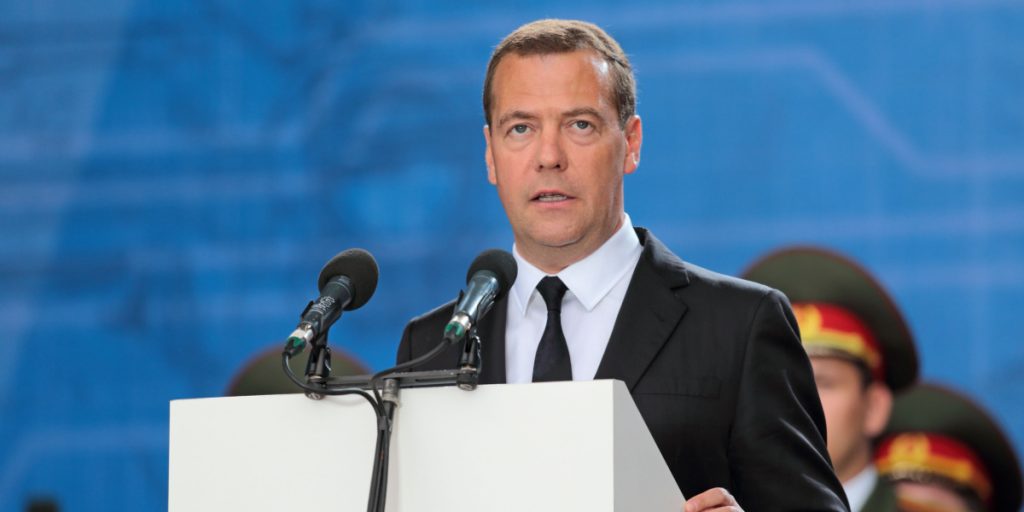‘Russia Will Always Be at War with Ukraine’
Others are reading now
Dmitry Medvedev, Deputy Chairman of the Security Council of the Russian Federation, has made a striking declaration regarding the ongoing conflict between Russia and Ukraine.
According to a report by Ukrainska Pravda, Medvedev has stated that Russia will perpetually be at war with Ukraine, suggesting that reasons for conflict will persist in the future, possibly for decades.
Medvedev’s comments, made on Telegram, indicate that Russia views the existence of Ukraine as a perpetual threat, not just in its current political form but in any form. He describes the existence of an independent state on what he claims are historical Russian territories as a constant excuse for the resumption of combat actions.
This viewpoint underlines a deep-rooted belief within Russian leadership that Ukraine’s sovereignty is inherently problematic and a justification for ongoing aggression.
Also read
Ukraine: An “Artificial Country”
In a further controversial statement, Medvedev refers to Ukraine as a “cancerous neoplasm” and an “artificial country,” expressing Russia’s refusal to recognize any Ukrainian government as legitimate.
He predicts an indefinite likelihood of new conflicts with Ukraine, regardless of any security agreements the West might establish with Kyiv.
This rhetoric casts a long shadow over prospects for peace, suggesting a Russian stance that is uncompromising and foreseeing continuous conflict.
The Future of Ukrainian Sovereignty
Medvedev’s assertions raise significant questions about the future relationship between Russia and Ukraine.
His belief that Ukrainians, despite their current animosity towards Russia, will eventually opt to live in a “great common state” instead of enduring perpetual conflict, indicates a Russian expectation of eventual dominance or absorption of Ukraine. This stance not only challenges Ukrainian sovereignty but also signals a troubling perspective on international relations and respect for national independence in the region.


